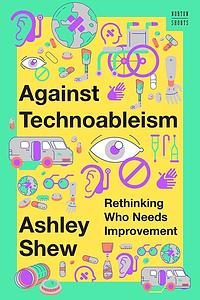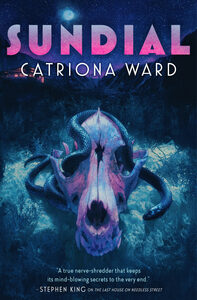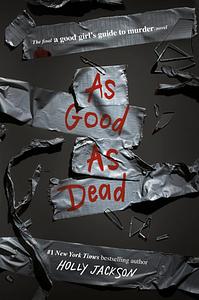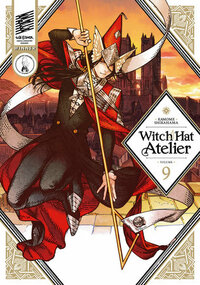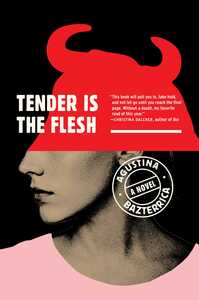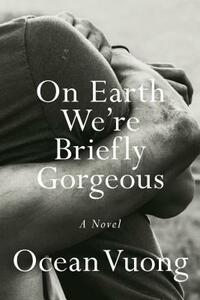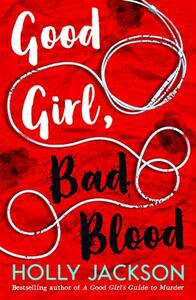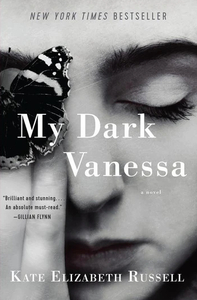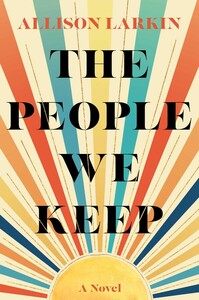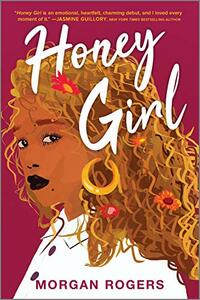You need to sign in or sign up before continuing.
Take a photo of a barcode or cover
_mhd_'s Reviews (141)
informative
fast-paced
An excellent introduction into the relationship between technology and ableism that was accessible and thorough. All of the chapters were thoughtfully written with information and takeaways that I found thought provoking. I wanted to know more about how mental illnesses interacted with technoableism and some other topics that were mentioned but that curiosity did not meaningfully detract from my overall enjoyment of this book. Definitely a great resource for anyone who wants to know more about technoableism and disability justice and for educators who want to discuss these topics with their students.
Meandering and shocking to be shocking. Casual, frequent, and gratuitous violence. Will be skipping this one.
dark
emotional
sad
tense
medium-paced
What a gripping last installment of such phenomenal series! Easily my favorite YA thriller/mystery series. I am so amazed by how interconnected the narrative is throughout and how well written the characters are. Jackson really knows how to write a page-turner that is difficult to put down. This series is among my favorite reads from this year so far (and of all time!). Would highly recommend.
adventurous
dark
emotional
hopeful
sad
tense
fast-paced
Mesmerizing world-building and complicated conflicts stand out in this volume. I adore the characters as always and appreciate with how much care sensitive themes were handled. I was absolutely blown away by the art especially on certain pages in the final chapters. I am still figuring out how I feel about the disabled representation and do feel as though the pacing was slow in some sections of this volume. Regardless, I really enjoyed this installment.
challenging
dark
sad
tense
medium-paced
emotional
reflective
sad
slow-paced
An emotionally demanding read steeped in beautiful language that at times really affected me and other times frustrated me. I have mixed feelings about Vuong as a writer now having read his novel and both his poetry collections. I was moved by many sections of the novel and thought the first few chapters and crucial metaphors were especially strong. But after a certain point, I found it somewhat draining to keep reading, as each trauma became followed by another with little reprieve.
To me, this felt as though it was a central thesis of the novel:“Let no one mistake us for the fruit of violence—but that violence, having passed through the fruit, failed to spoil it.” This is an undoubtedly excellent line that indicates wanting to focus on the beautiful and the good over the violence and the trauma.
And yet, I was unconvinced. Was what Vuong illustrated in many of the scenes beauty divorced from violence and trauma? Or was it a romanticization of the trauma that occurred in order to cope with it? How exactly are we defining beauty here? Every aspect of this novel is filled with beautiful language, to the point that for me, it at times detracted from the core message and made me feel as though everything was beautified including the trauma and the violence. We are shown how complicated many of the relationships in the novel are and the characters involved are undoubtedly humanized. However, the core issues in these relationships—abuse, intergenerational trauma, addiction—are never fully addressed. There is, again, something humanizing about people who mistreat you also having the capacity to be beautiful and simple and even kind. But in the portrayals of other characters and narrator’s relationships with them in this novel, because the core issues and wounds are never broached in these relationships, leaning into beauty in these instances evoked a romanticized feeling that was not unpacked. For the most part, it is beauty that is found /in/ the trauma and violence and its complexities and aftereffects rather than /despite/ it, which appears to contradict the intended message.
There were certain language and metaphors that were used that also sounded beautiful but seemed to lack underlying meaning, even as I reread them several times to understand what was trying to be said. Because of this, I feel as though “artistry” was valued over true vulnerability at times, which also affected my reading of this novel.
I really wanted to enjoy this novel more than I did, and I definitely had moments where I was affected or moved. I am certainly glad I read it because I had been wondering about it for some time now. Unfortunately, it just turned out to not really land for me in its entirety.
To me, this felt as though it was a central thesis of the novel:
And yet, I was unconvinced. Was what Vuong illustrated in many of the scenes beauty divorced from violence and trauma? Or was it a romanticization of the trauma that occurred in order to cope with it? How exactly are we defining beauty here? Every aspect of this novel is filled with beautiful language, to the point that for me, it at times detracted from the core message and made me feel as though everything was beautified including the trauma and the violence. We are shown how complicated many of the relationships in the novel are and the characters involved are undoubtedly humanized. However, the core issues in these relationships—abuse, intergenerational trauma, addiction—are never fully addressed. There is, again, something humanizing about people who mistreat you also having the capacity to be beautiful and simple and even kind. But in the portrayals of other characters and narrator’s relationships with them in this novel, because the core issues and wounds are never broached in these relationships, leaning into beauty in these instances evoked a romanticized feeling that was not unpacked. For the most part, it is beauty that is found /in/ the trauma and violence and its complexities and aftereffects rather than /despite/ it, which appears to contradict the intended message.
There were certain language and metaphors that were used that also sounded beautiful but seemed to lack underlying meaning, even as I reread them several times to understand what was trying to be said. Because of this, I feel as though “artistry” was valued over true vulnerability at times, which also affected my reading of this novel.
I really wanted to enjoy this novel more than I did, and I definitely had moments where I was affected or moved. I am certainly glad I read it because I had been wondering about it for some time now. Unfortunately, it just turned out to not really land for me in its entirety.
dark
mysterious
tense
fast-paced
Another engaging thriller from Jackson! As always, the characters in this series were fantastic. Jackson has created such an excellent cast that I would keep reading no matter what they did next. I did think that the twist toward the end could have benefited from more foreshadowing but otherwise found this sequel a great follow-up to this series.
challenging
dark
emotional
sad
tense
medium-paced
DNF @ ~20%. I have nothing in particular against this book at this point. The writing style and many of the descriptions are great, but I find myself disengaged from the story. I admittedly hadn’t expected for the protagonist to be sixteen since this wasn’t marketed as a young adult novel. I feel as though I‘m likely not the target audience, and that’s okay. I also read about plot points that develop down the line, and I feel like I‘m not going to be a huge fan of them or the way that they’re handled, so I‘m going to stop here.
DNF @ ~25%. I find myself not feeling particularly strongly about this book even though I’m over 1/4th in. The core concepts are repetitive throughout and so is the writing style, which while beautiful in certain sections, leans poetic too often at a detriment. I’m not particularly invested in any particular characters or their relationships (and am not convinced of some). Outside of the protagonist’s relationship with her father and her difficulties with opening up to others, I have been mostly told about what she struggles with rather than shown, so I find it difficult to invest in her even though her story is important. I’m also struggling with my suspension of disbelief with the marriage and how everyone is reacting to it so far. A part of me feels compelled to continue reading because it is a very easy read and the core concept does pull me in. Unfortunately though, the execution itself doesn’t meet my expectations, so I’m going to put this one down.
